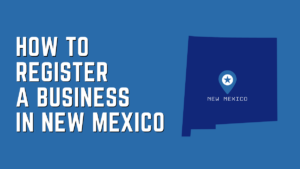Starting a business in Pennsylvania is an exciting venture, but registering it can seem daunting, especially for first-time entrepreneurs. However, with the right guidance and resources, navigating the business registration process in Pennsylvania can be straightforward and manageable.
This blog simplifies the process of business registration with a step-by-step guide. It offers tips and resources for help. Whether you’re starting a new business or formalizing an existing one, our guide breaks it down into seven easy steps.
Acknowledging the complexities of business registration, we’ve curated a list of leading services, such as Northwest Registered Agent, to aid you. Let’s delve in and expedite your Pennsylvania business registration!
>> Pennsylvania Business Registration – Northwest Registered Agent >>
Featured Partner
Northwest Registered Agent
Start with an LLC
for $39 + state fee
Priority Support Team
24/7
Form an LLC online
Fast And Easy
How to Register Your Business in Pennsylvania in 7 Simple Steps
Registering your business in Pennsylvania can be seamless if you know the procedures. By adhering to these seven uncomplicated steps, you can effortlessly register your business in Pennsylvania and begin a prosperous entrepreneurial journey within the Keystone State.
Step 1: Choose Your Business Structure
Choosing the right business structure in Pennsylvania is crucial, and it depends on your business and your future growth plans. In our previous discussions, we covered the various options available for incorporated and unincorporated businesses in Pennsylvania. Now, let’s delve into these choices and comprehensively understand their operations.
It’s important to note that if you opt for a structure that causes incorporation, like those mentioned below, you must register your business with the Pennsylvania Secretary of State.
Sole Proprietorship
In Pennsylvania, a Sole Proprietorship is the most straightforward form of business arrangement. Under this structure, the owner and the business are considered one legal entity. The owner assumes personal responsibility for any debts or obligations of the business.
Setting up a Sole Proprietorship in Pennsylvania is a hassle-free process that requires minimal legal and administrative formalities. While state registration isn’t mandatory for Sole Proprietorships in Pennsylvania, acquiring local permits or licenses for operating your business may be necessary.
General Partnership
A General Partnership is a business jointly owned by two or more individuals who collectively bear the gains and losses. Each partner handles the company’s financial obligations and legal commitments.
There’s no compulsory requirement in Pennsylvania to register a General Partnership with the state authorities. However, filing a “Pennsylvania Fictitious Name Registration” (also known as DBA) in the county where your business operates might be necessary.
Limited Partnership (LP)
In Pennsylvania, a Limited Partnership consists of one or more general partners who oversee the operations and carry unrestricted personal responsibility. One or more limited partners contribute capital but have restricted liability. To establish an LP in Pennsylvania, it’s necessary to submit a “Certificate of Limited Partnership” to the Secretary of State of Pennsylvania.
Limited Liability Company (LLC)
An LLC is a business structure that offers the best of both worlds: the liability protection of a Corporation, tax advantages, and the simplicity of a partnership.
To establish an LLC in Pennsylvania, you must submit a “Certificate of Organization Limited Liability Company” to the Pennsylvania Secretary of State and develop an Operating Agreement that details how the company will be managed and owned.
Corporation
A Corporation is a distinct legal entity from its shareholders, providing limited liability protection. In Pennsylvania, there are two categories of Corporations available.
- C-Corporations
- S-Corporations
To register a business in Pennsylvania, submit an “Articles of Incorporation” document to the Pennsylvania Secretary of State. This document must clearly state whether the Corporation is for-profit or nonprofit. Additional steps are required for Corporations, including drafting bylaws, issuing shares, and conducting regular meetings with directors and shareholders.
When choosing a business structure, consider liability protection, taxation implications, and management demands. If you require guidance in making this decision, it’s advisable to consult with a legal or business expert.
>> Pennsylvania Business Registration – Northwest Registered Agent >>
Step 2: Select a Unique Business Name
Pennsylvania has its own set of regulations and guidelines for naming businesses. In Pennsylvania, you have three choices for naming your business: registering a legal entity name, obtaining a trademark, or registering a legal name and operating under a different one. It’s essential to review the specific requirements set by Pennsylvania carefully.
Similar to incorporating your business, the Pennsylvania naming method will depend on your entity’s unique needs and circumstances.
You may follow all three routes to ensure your business name stands out. Alternatively, you can select one of the three options. While not mandatory, using the same name for each registration method is often recommended.
Now, let’s explore each available naming option in detail within Pennsylvania:
Legal Entity Name
In Pennsylvania, it’s necessary for businesses to register a legal entity name that acts as the official identification for the company within the state. This entity name must be distinct and not shared by any other business.
The naming regulations in Pennsylvania also outline specific guidelines concerning company suffixes such as LLC, LP, or Corp. It mandates that the chosen name accurately represents the registered business type. To verify if a particular name is available, you can use the online database provided by the Pennsylvania Department of State.
Trademark
In Pennsylvania, a business name or logo can be safeguarded through trademark protection at a national level. Conduct a thorough search in the USPTO database to ensure that your name or logo isn’t already registered.
Registering your trademark grants you exclusive rights and prohibits others from using similar names or logos for similar goods or services anywhere in the country. However, it’s important to note that obtaining a trademark does not automatically mean unlimited usage of the name or logo in all situations.
Doing Business As (DBA)
In Pennsylvania, you can register your business using an official name, which can differ from the one you operate under. This is referred to as a Fictitious Name or Doing Business As (DBA) name. Submit a Fictitious Name Registration with the Pennsylvania Department of State to establish a DBA. Although these names are subject to federal trademark laws, they aren’t required to be unique at the state level.
By considering and understanding these options for naming your business, you can successfully register your business name in Pennsylvania while safeguarding your brand’s identity.
>> Pennsylvania Business Registration – Northwest Registered Agent >>
Step 3: Consider Taxes and Other Costs in Pennsylvania
Pennsylvania businesses may have to pay a variety of taxes. Some of the frequently encountered taxes include:
- Sales tax: In Pennsylvania, there’s a 6% sales tax that applies to all purchases. Retailers and service providers operating in the state must collect this tax from their customers.
- Use tax: Pennsylvania also imposes a use tax, which applies to items bought from outside the state and brought into Pennsylvania for personal use. Companies that acquire goods from out-of-state and bring them into Pennsylvania must remit the applicable use tax for those items.
- Corporate income tax: Pennsylvania-based Corporations or those conducting business in the state must fulfill their obligation of paying corporate income tax. The applicable rate for corporate income tax in Pennsylvania stands at 9.99%.
- Personal income tax: Residents and employees in Pennsylvania must fulfill their obligation to pay personal income tax. The state levies a personal income tax at rates ranging from 3.07% to 3.7%.
- Employer withholding tax: Pennsylvania businesses must deduct state income tax from their employees’ paychecks. The specific amount of withholding tax depends on the employee’s filing status and earnings.
- Unemployment compensation tax: Pennsylvania-based businesses must pay unemployment compensation tax, which has a fixed rate of 6.2%.
Alongside these taxes, Pennsylvania-based businesses may also have to fulfill obligations for additional taxes.
- Business privilege tax: The privilege tax for businesses in Pennsylvania is a tax imposed on the privilege of conducting business activities within the state. In Pennsylvania, businesses with gross receipts under $1 million are subject to a yearly rate of $150, while those with gross receipts equal to or exceeding $1 million are taxed at a rate of $300 per year.
- Realty transfer tax: When real estate is transferred, the realty transfer tax comes into play. In Pennsylvania, this tax is based on a rate of 1.5% of the purchase price of the property.
- Inheritance tax: When real estate is transferred, the realty transfer tax comes into play. In Pennsylvania, this tax is based on a rate of 1.5% of the purchase price of the property.
Businesses in Pennsylvania must pay taxes based on their type, size, and location. Consulting a tax professional is advised to determine the applicable taxes.
Pennsylvania business owners can use online services such as Northwest Registered Agent to streamline the registration process. This platform facilitates filing documents with the Secretary of State, obtaining an Employer Identification Number (EIN), and drafting an operating agreement. Ongoing compliance support is also available to help businesses stay in line with state regulations.
>> Register Your Business With Northwest Registered Agent >>
Step 4: Register and Acquire Licenses and Permits in Pennsylvania
To conduct your business in Pennsylvania, acquire the licenses and permits. Below are the essential prerequisites for compliance:
Tax Registration: If you intend to sell products in Pennsylvania, apply for a sales tax license. If your plan involves hiring employees within Pennsylvania, you must go through the registration process for employer withholding tax. These registrations, among others, can be finalized by completing Form PA-100, which is known as the Pennsylvania Enterprise Registration form.
EIN (Employer Identification Number): Obtaining a federal Employer Identification Number (EIN) from the IRS is mandatory if your business has employees or is subject to separate taxation.
Acquiring an EIN, even if not legally required, can be highly beneficial for business purposes. Financial institutions usually ask for an EIN to open accounts in the business’s name, and payment processors may also require it. Fortunately, you can easily obtain an EIN by submitting an online application with no filing fee involved.
Regulatory Licenses and Permits: Covering a wide range of domains such as health and safety, environmental adherence, architecture, construction, and industry-specific services, these licenses and permits are essential for various purposes. To obtain the most significant licenses and permits in Pennsylvania, you can make use of Form PA-100, which is known as the Pennsylvania Enterprise Registration.
This form contains a specific section dedicated to applying for business licenses. For details on local licenses and permits required for your business operations in specific cities or counties, it’s recommended to refer to the official websites of those locations.
Professional and Occupational Licenses: Individuals in various fields must obtain specific licenses. The Professional Licensing section on the Department of State (DOS) website offers information on state regulatory boards and general details about different professional regulatory boards in the state.
By adhering to these suggestions, you can ensure a seamless application process for licenses and permits in Pennsylvania.
>> Register Your Business With Northwest Registered Agent >>
Step 5: Open a Bank Account for Your Business in Pennsylvania
After acquiring your EIN, you have the green light to initiate opening a business bank account in Pennsylvania.
To comply with the regulations for LLPs, LLCs, and Corporations in Pennsylvania, it’s essential to establish a dedicated business bank account. However, sole proprietors and unincorporated partnerships must not maintain separate personal and business accounts.
The procedure for opening a business account in Pennsylvania is straightforward. Visit your local bank and complete the paperwork. It’s advisable to compare rates and benefits different banks offer before settling on one provider.
To maintain a clear distinction between your personal and business finances, it’s recommended that individuals operating as sole proprietors or unincorporated partnerships in Pennsylvania establish a dedicated business bank account. This step becomes even more crucial if you plan to incorporate your business down the line, as it will help avoid potential complications.
>> Consider Northwest Registered Agent >>
Step 6: Protect Your Intellectual Property in Pennsylvania
When launching a business in Pennsylvania, safeguard your valuable Intellectual Property (IP) assets.
For example, many businesses aim to protect their name and logo from being replicated and used by others. Depending on your business, you may also want to secure the design of your products or the creative works (such as writing, designs, or music) that you create.
In Pennsylvania, there are multiple approaches to accomplishing this goal, and it’s beneficial to promptly initiate the required applications to prevent unauthorized use of your IP.
Trademark
In Pennsylvania, a trademark is an identifiable symbol, phrase, word, or design that sets apart one product or service from others in the market.
To secure legal protection, trademarks must be registered with the USPTO (United States Patent and Trademark Office). It typically takes about four to six months to complete the registration process. Once registered, the trademark is protected nationwide and can be enforced against unauthorized usage.
Pennsylvania businesses have the option of safeguarding their trademarks by registering them with the USPTO. This not only ensures protection for their brand and reputation but also grants legal recourse against any unauthorized use of their trademark.
Copyright
Copyright law in Pennsylvania safeguards a variety of original works, including literary, dramatic, musical, artistic, and other intellectual creations. This encompasses written content, software programs, web materials, films, sound recordings, images, and various forms of creative expression.
When you produce a new work in Pennsylvania as its creator or authorship is automatically granted copyright protection to you. As the proprietor of exclusive rights to distribute or reproduce the work and create derivative works from it or sell your Intellectual Property rights outrightly, you possess legal authority over how your work is used.
Should you choose to secure additional legal protection for your copyright and obtain proof of ownership? Registering it with the U.S. Copyright Office would be beneficial. By doing so in Pennsylvania specifically, not only will this safeguard against infringement on your work but also offer recourse through litigation should any disputes arise regarding your rights.
Patent
In Pennsylvania, it’s essential to acquire a patent if you create a new product or machinery. A patent provides exclusive rights to the holder and prohibits others from producing, selling, or importing the patented item for a designated time frame.
The process of obtaining a patent is intricate and can span up to five years. Therefore, starting the process early is recommended if you have an innovative invention that requires protection. The submission of patent applications occurs at the United States Patent and Trademark Office (USPTO).
By safeguarding your Intellectual Property in Pennsylvania, you can ensure the preservation of your brand, products, and creations. This measure guarantees that your business maintains a helpful position in the market and continues to thrive.
>> Visit Northwest Registered Agent >>
Step 7: Set Up Your Payment Infrastructure in Pennsylvania
To ensure that your business in Pennsylvania is prepared to serve customers after registration, it’s essential to establish a payment system convenient and free of hassle.
There are many services available for processing payments, each offering user-friendly interfaces that seamlessly integrate with your website or point-of-sale (POS) system. Well-known options such as Square, Stripe, and PayPal provide flexible and easy-to-set-up solutions that allow you to customize them according to your business goals.
These payment processors allow you to accept a wide variety of payment methods, including credit cards, debit cards, ACH transfers, and digital wallets like Apple Pay and Google Pay.
By choosing a trustworthy payment processing service, you can offer your customers the convenience of paying through their preferred methods via a secure platform. This ensures both you and your clients have a smooth transaction experience.
Choosing a payment processor is just the beginning of ensuring compliance with Pennsylvania’s sales tax regulations. Obtaining a Pennsylvania Sales and Use Tax License from the Pennsylvania Department of Revenue is crucial, as it grants you permission to collect sales tax on taxable goods and services.
With your payment infrastructure in place, your business based in Pennsylvania will be fully equipped to generate revenue and provide secure customer service. By diligently following these guidelines, establish a legally compliant business in the state of Pennsylvania.
>> Register Your Business With Northwest Registered Agent >>
Top 6 Business Registration Services for Pennsylvania Entrepreneurs
Entrepreneurs and small business owners can take advantage of various business registration services tailored to their specific requirements. These services provide different options to aid businesses in establishing themselves and adhering to state and federal regulations. Here are some key business registration services that entrepreneurs in Pennsylvania can access:

Northwest Registered Agent
Related Post Link
Northwest Registered Agent is a reputable online service that focuses on assisting businesses with their registration needs, compliance management, and filing of important documents.
They’re well-known for their excellent customer service and commitment to exceptional quality. Their dedicated team offers personalized help to ensure that businesses remain under state and federal regulations.
One area where Northwest Registered Agent excels is in providing various services for LLCs, Corporations, and nonprofits. They understand the unique requirements of entrepreneurs based in Pennsylvania and cater to those needs accordingly.
>> Pennsylvania Business Registration – Northwest Registered Agent >>

Tailor Brands
Related Post Link
Tailor Brands is a digital platform that specializes in helping businesses develop a polished and unified brand identity. Their services encompass various branding solutions, such as logo design, business card creation, and social media branding.
Besides these offerings, Tailor Brands equips businesses with an array of design tools and resources. This empowers entrepreneurs in Pennsylvania to craft and personalize their own branded assets. Though not explicitly focused on conventional business registration services, Tailor Brands aids entrepreneurs in establishing an attractive brand image that resonates with customers.
>> Register Your Business in Pennsylvania With Tailor Brands >>

BusinessRocket
Related Post Link
BusinessRocket is an online platform designed for Business Registration in Pennsylvania. It simplifies the process by offering expert guidance and a user-friendly interface.
From choosing the right business structure to filing paperwork and acquiring licenses, BusinessRocket provides customized solutions to meet each client’s needs. With intuitive tools and resources, it enables entrepreneurs to establish their ventures while experts handle administrative tasks confidently.
>> Get Started With BusinessRocket >>

ZenBusiness
Related Post Link
ZenBusiness is a digital platform that focuses on assisting businesses with their registration needs. Their services cover various aspects, such as business formation, registered agent services, and annual report filing.
They provide affordable pricing options and packages that come with personalized support and useful resources to aid businesses in maintaining compliance and promoting growth. With an easy-to-navigate website and a simplified process, ZenBusiness offers Pennsylvania entrepreneurs a convenient way to register their businesses.
>> Register Your Business in Pennsylvania With ZenBusiness >>

Swyft Filings
Related Post Link
Swyft Filings is well-known for its efficient business registration service, which offers quick and effortless business formation services such as LLC formation, incorporation, and compliance.
They provide personalized help and valuable resources to help businesses navigate the registration process while adhering to state and federal regulations. With a user-friendly website and budget-friendly pricing options, Swyft Filings streamlines the registration process for entrepreneurs in Pennsylvania.
>> Register Your Business in Pennsylvania With Swyft Filings >>

Bizee (Previously Bizee)
Related Post Link
Bizee is a digital service that specializes in the rapid and cost-effective establishment of businesses. Their offerings encompass registered agent services, compliance management, and document submission.
Bizee’s intuitive and efficient platform guarantees Pennsylvania-based entrepreneurs a straightforward and stress-free procedure to register their businesses. They offer continuous help and valuable resources to maintain compliance and foster growth.
By conducting thorough research on various business registration services, entrepreneurs in Pennsylvania can identify the optimal solution that aligns with their unique requirements while streamlining the registration process.
>> Register Your Business in Pennsylvania With Bizee >>
Business Registration Laws in Pennsylvania
The regulations for registering a business in Pennsylvania are under the authority of the Pennsylvania Secretary of State. If you’re interested in registering a business in Pennsylvania, it’s important to remember these essential factors:
- Business Name Registration: Opt for an original and easily recognizable title for your company. Verify the Pennsylvania Department of State’s website to confirm its availability and absence of prior usage. You can reserve the name for 120 days by applying with the Department of State.
- Choosing a Business Structure: Choose an appropriate legal framework for your enterprise, including options like Sole Proprietorship, Partnership, Corporation, or Limited Liability Company (LLC). Each structure has distinct tax, liability, and management obligations and consequences.
- Registering with the Pennsylvania Department of State: Many companies in Pennsylvania must register with the Department of State to operate legally. The registration process and necessary paperwork vary depending on the type of business structure selected. For instance, corporations are required to submit Articles of Incorporation, while LLCs must file Certificates of Organization.
- Employer Identification Number (EIN): If your business needs to hire employees or is structured as a Corporation or Partnership, acquire an Employer Identification Number (EIN) from the Internal Revenue Service (IRS). The process of obtaining an EIN can be done conveniently online through the official IRS website.
- Business Licenses and Permits: Depending on the type of your enterprise, you might have to acquire extra permits or licenses at the federal, state, or local level. The prerequisites differ depending on your business’s industry and location. To obtain information about particular licenses and permits, consult the Pennsylvania Department of Labor and Industry and local authorities.
- Taxes and Reporting: Enroll with the Pennsylvania Department of Revenue to meet your tax responsibilities. The specific taxes you must pay will vary based on your business’s structure and operations. Examples of typical taxes include sales tax, employer withholding tax, and corporate income tax.
Please remember that laws and regulations are subject to change. To ensure you have the most current and accurate information, you’re advised to visit the official website of the Pennsylvania Department of State or seek guidance from a knowledgeable attorney or business expert who is well-versed in Pennsylvania business laws.
>> Register Your Business With Northwest Registered Agent >>
Alternative Business Registration Methods in Pennsylvania
Pennsylvania offers various alternative methods for individuals and entities seeking to register a business in Pennsylvania. Here are some alternatives to consider when registering your business in Pennsylvania.
Online Business Registration
The Pennsylvania Department of State provides a digital platform called “PA Open for Business” (PAO4B), enabling individuals to register their businesses. This platform simplifies the procedure and offers detailed instructions on how to fill out the required forms.
Mail-in Registration
If you prefer a more conventional approach, you can acquire the required documents from the Pennsylvania Department of State website and send them in by mail. These documents usually consist of Articles of Incorporation (for Corporations), a Certificate of Organization (for LLCs), or a Fictitious Name Registration (for sole proprietors).
In-Person Registration
If you prefer a personal touch, you can head over to the Bureau of Corporations and Charitable Organizations in Harrisburg, Pennsylvania, to register your business in Pennsylvania. At their location, you’ll be able to acquire the forms, fill them out on-site, and directly submit them.
Regardless of which method you choose, it’s essential that you carefully follow the correct registration procedures and fulfill all requirements specified by the Pennsylvania Department of State. This typically involves providing accurate details about your business, paying any required fees, and complying with any additional regulations that may apply based on your industry or business type.
>> Try Northwest Registered Agent Today! >>
Benefits of Registering Your Business in Pennsylvania
There are many advantages to registering your business in Pennsylvania. Here are a few of the main benefits:
- Legal Recognition: Registering your business establishes its legal existence as a separate entity from its owners. This provides limited liability protection, ensuring that your assets are safeguarded in case of any business liabilities or debts.
- Access to Financing: Registering your business opens various possibilities for securing financial support, such as loans, grants, and investments. Lenders and investors frequently favor working with registered businesses because they showcase a sense of dedication and expertise.
- Brand Protection: Registering your business name and logo as trademarks in Pennsylvania can safeguard your brand identity effectively. This measure ensures that no one else can use similar names or logos that might lead to confusion in the market and potentially damage your business’s reputation.
- Tax Benefits: By registering your business, you can use the many tax benefits and deductions offered explicitly to businesses in Pennsylvania. These advantages encompass deductions for expenses related to your business, access to tax credits designed for businesses, and the option to file taxes using a separate legal entity for your business.
- Business Permits and Licenses: Depending on your field, you might need to register your company to acquire the essential licenses and permits. Doing so ensures that your business adheres to local and state regulations, enabling you to operate lawfully while avoiding any potential fines or forced closures.
- Enhanced Credibility: By registering your business, you enhance the trustworthiness of your operations and establish credibility with customers, suppliers, and partners. It showcases your dedication to professionalism, adherence to regulations, and aspirations for long-term business expansion.
- Easy Business Expansion: Registering your business in Pennsylvania establishes a strong basis for future progress and development. This step allows you to expand by opening more branches, recruiting staff members, and entering into contractual agreements. It promotes your business’s growth potential.
- Access to Government Contracts: By registering your business, you can access government contracts and procurement opportunities at various levels: local, state, and federal. Government entities often prefer registered businesses when working together, which presents a valuable opportunity to secure profitable contracts.
- Networking and Support: When officially registering your business in Pennsylvania, you unlock a vast network of like-minded entrepreneurs, professional organizations, and valuable governmental resources. This lets you leverage essential help and guidance from experienced mentors and potential collaborations.
Please be aware that the advantages of registering your business can differ based on your unique situation and your enterprise type. It would be beneficial to seek advice from a legal or financial expert to fully comprehend the range of benefits for your specific business.
Is Business Registration Required in Pennsylvania
In fact, most businesses that operate in Pennsylvania must go through the process of registering with the state. The exact requirements for registration differ depending on factors such as the type of business and its nature, among others.
Some common examples of registration procedures include gaining a Pennsylvania Sales and Use Tax Permit, registering a Limited Liability Company (LLC) or Corporation in Pennsylvania, and obtaining professional licenses or permits for certain industries.
Conduct comprehensive research on your business’s specific registration obligations. This will ensure that you comply with all necessary requirements and help minimize any potential legal or financial consequences that may arise from non-compliance.
>> Get Started With Northwest Registered Agent >>
How to Register Your Business in Pennsylvania – Frequently Asked Questions
>> Register Your Business With Northwest Registered Agent >>
Bottom Line on How to Register Your Business in Pennsylvania
When registering your business in Pennsylvania, adhering to state regulations is crucial for establishing a strong foundation. Essential steps include selecting an appropriate business name and legal structure, completing the necessary paperwork, and obtaining the required licenses and permits.
A business registration service like Northwest Registered Agent can make the process easier and ensure compliance. Proper registration helps prevent legal and financial problems, setting you up for success.
>> Get Started With Northwest Registered Agent >>
Related Articles
- LLC Formation Services
- How to File Your Pennsylvania DBA
- How to Start LLC in PA
- Pennsylvania LLC Cost
 Sections of this topic
Sections of this topic

















